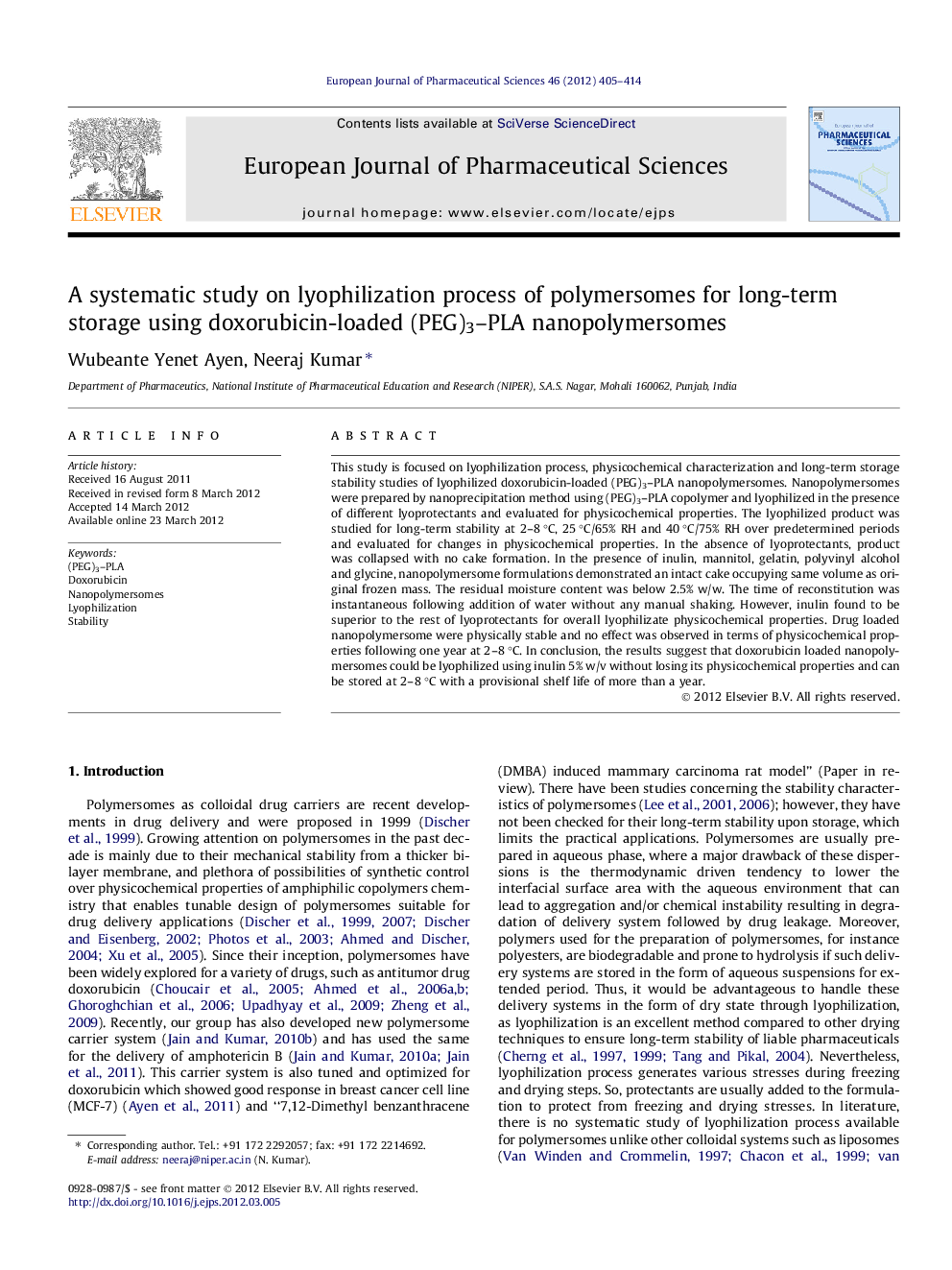| کد مقاله | کد نشریه | سال انتشار | مقاله انگلیسی | نسخه تمام متن |
|---|---|---|---|---|
| 2480953 | 1556218 | 2012 | 10 صفحه PDF | دانلود رایگان |

This study is focused on lyophilization process, physicochemical characterization and long-term storage stability studies of lyophilized doxorubicin-loaded (PEG)3–PLA nanopolymersomes. Nanopolymersomes were prepared by nanoprecipitation method using (PEG)3–PLA copolymer and lyophilized in the presence of different lyoprotectants and evaluated for physicochemical properties. The lyophilized product was studied for long-term stability at 2–8 °C, 25 °C/65% RH and 40 °C/75% RH over predetermined periods and evaluated for changes in physicochemical properties. In the absence of lyoprotectants, product was collapsed with no cake formation. In the presence of inulin, mannitol, gelatin, polyvinyl alcohol and glycine, nanopolymersome formulations demonstrated an intact cake occupying same volume as original frozen mass. The residual moisture content was below 2.5% w/w. The time of reconstitution was instantaneous following addition of water without any manual shaking. However, inulin found to be superior to the rest of lyoprotectants for overall lyophilizate physicochemical properties. Drug loaded nanopolymersome were physically stable and no effect was observed in terms of physicochemical properties following one year at 2–8 °C. In conclusion, the results suggest that doxorubicin loaded nanopolymersomes could be lyophilized using inulin 5% w/v without losing its physicochemical properties and can be stored at 2–8 °C with a provisional shelf life of more than a year.
Figure optionsDownload high-quality image (88 K)Download as PowerPoint slide
Journal: European Journal of Pharmaceutical Sciences - Volume 46, Issue 5, 15 August 2012, Pages 405–414